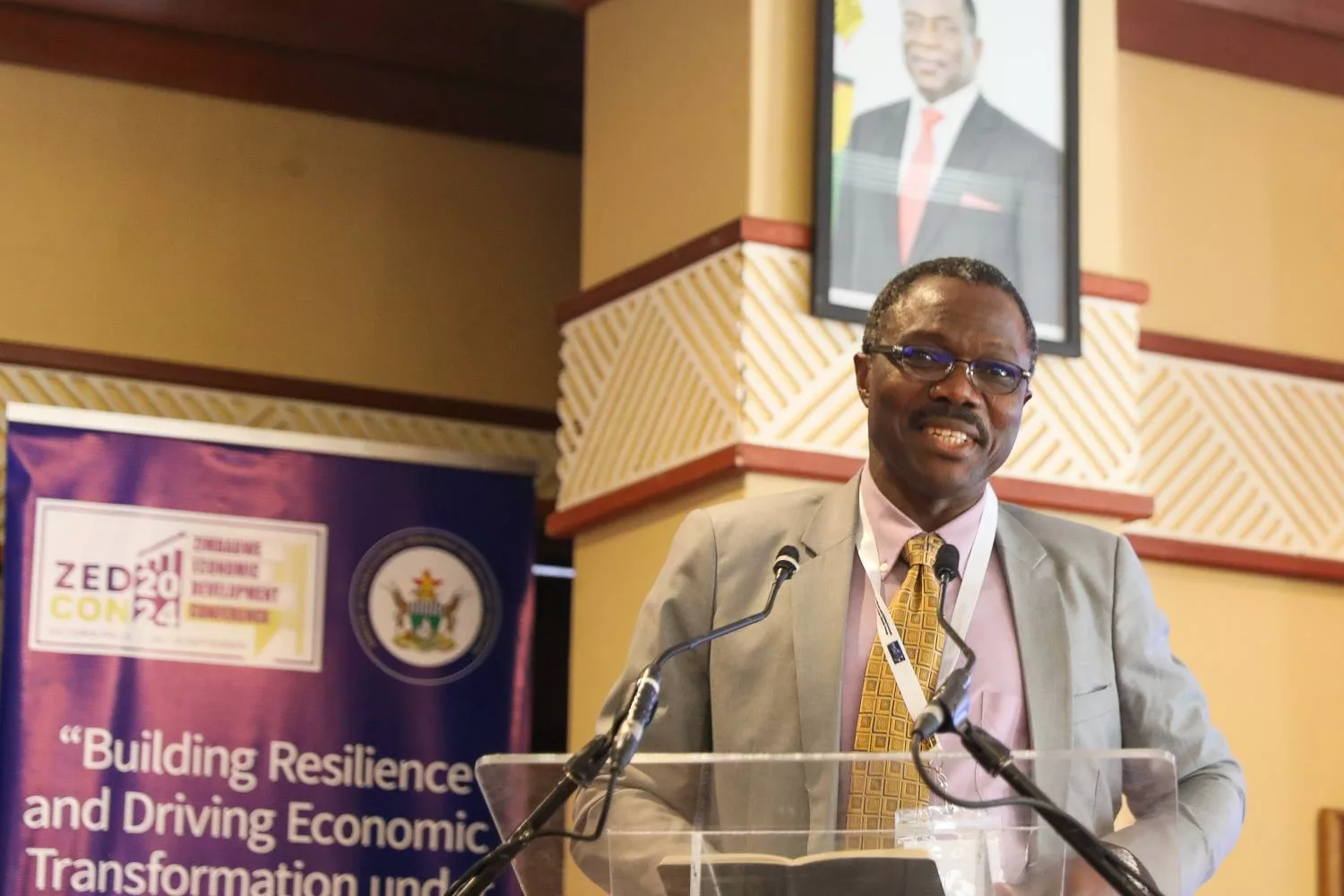|
Getting your Trinity Audio player ready...
|
Writes Dr Ayodele Odusola, UNDP Zimbabwe Resident Representative
Zimbabwe stands at a pivotal moment in its development journey, facing the dual challenge of climate change and economic transformation. The recent Zimbabwe Economic Development Conference (ZEDCON) in Victoria Falls underscored the urgency of addressing these intertwined issues, highlighting both the vulnerabilities we face and the opportunities for innovative solutions.
Our nation’s climate vulnerability is stark. Ranked 15th globally in climate risk and near the bottom in climate readiness, Zimbabwe faces an existential threat from extreme weather events. The ongoing El Niño-induced crisis, affecting over 6 million citizens and dampening economic growth, vividly illustrates the cascading effects of climate volatility on our socio-economic fabric.
Yet, within these challenges lie unprecedented opportunities for reinvention. By embracing climate adaptation as a driver of economic transformation, Zimbabwe can pioneer a new model of sustainable development.
Central to this transformation is the acceleration of our renewable energy transition. The success of initiatives like UNDP’s Solar for Health, which has equipped over 1,000 health facilities with solar power, demonstrates the potential for clean energy to enhance public services and stimulate economic growth. Expanding this model across sectors could position Zimbabwe as a regional leader in green technology.
Agriculture, our economic backbone, requires a paradigm shift towards climate-smart practices. Investing in drought-resistant crops, advanced irrigation systems, and cutting-edge weather forecasting can create a resilient agricultural sector capable of withstanding climate shocks while boosting productivity and export potential.
The private sector must be a key ally in this transformation. Adopting Environmental, Social, and Governance (ESG) standards and circular economy principles isn’t just corporate responsibility—it’s an economic imperative. Companies that adapt to climate realities will be better positioned to attract investment and contribute to national climate goals. Government policies should incentivize this green innovation and facilitate public-private partnerships in climate-resilient infrastructure.
Viewing climate adaptation through the lens of infrastructure development opens numerous opportunities. Implementing sophisticated early warning systems, constructing climate-resilient transportation networks, and modernizing water infrastructure are investments in Zimbabwe’s future economic stability and growth potential.
However, financing this transformation requires innovative approaches. Zimbabwe must strategically pursue international climate finance, such as the Green Climate Fund. Accessing these resources demands more than articulating need—it requires demonstrating a coherent, ambitious vision for sustainable development through concrete policy actions and pilot projects.
The path forward necessitates a whole-of-society approach, with government, private sector, civil society, and academia working in concert. We must foster a national culture of climate awareness and action, integrating climate considerations into every facet of economic planning and social development.
As we navigate these complex challenges, we must recognize that our actions today will shape Zimbabwe’s future. By embracing climate change as a catalyst for economic transformation, we have the potential to not only safeguard our future but to emerge as a model for sustainable development in Africa and beyond.
The time for incremental changes has passed. Zimbabwe needs bold, visionary action that reimagines our development pathway in the context of climate realities. As we stand at this crossroads, let us choose the path of innovation, resilience, and sustainable growth. Our future—and that of generations to come—depends on the choices we make today.
Dr. Ayodele Odusola is an accomplished economist and development expert with nearly three decades of experience in senior leadership positions within the United Nations System. Currently serving as the UNDP Resident Representative for Zimbabwe, Dr. Odusola champions innovative approaches to address poverty, inequality, and climate resilience.






